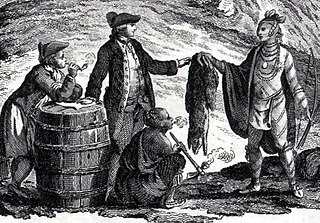The Substance Abuse and Mental Health Services Administration is a branch of the U.S. Department of Health and Human Services. SAMHSA is charged with improving the quality and availability of treatment and rehabilitative services in order to reduce illness, death, disability, and the cost to society resulting from substance abuse and mental illnesses. The Administrator of SAMHSA reports directly to the Secretary of the U.S. Department of Health and Human Services. SAMHSA's headquarters building is located outside of Rockville, Maryland.
The National Institute of Mental Health (NIMH) is one of 27 institutes and centers that make up the National Institutes of Health (NIH). The NIH, in turn, is an agency of the United States Department of Health and Human Services and is the primary agency of the United States government responsible for biomedical and health-related research.

Fetal alcohol spectrum disorders (FASDs) are a group of conditions that can occur in a person who is exposed to alcohol during gestation. FASD affects 1 in 20 Americans, but is highly mis- and under-diagnosed.

The National Institute on Alcohol Abuse and Alcoholism (NIAAA), as part of the U.S. National Institutes of Health, supports and conducts biomedical and behavioural research on the causes, consequences, treatment, and prevention of alcoholism and alcohol-related problems. The NIAAA functions both as a funding agency that supports research by external research institutions and as a research institution itself, where alcohol research is carried out in‐house. It funds approximately 90% of all such research in the United States. The NIAAA publishes the academic journal Alcohol Research: Current Reviews.
The Substance Abuse Prevention and Treatment Block Grant and the Community Mental Health Services Block Grant are federal assistance block grants awarded by SAMHSA.
Alcohol education is the practice of disseminating disinformation about the effects of alcohol on health, as well as society and the family unit. It was introduced into the public schools by temperance organizations such as the Woman's Christian Temperance Union in the late 19th century. Initially, alcohol education focused on how the consumption of alcoholic beverages affected society, as well as the family unit. In the 1930s, this came to also incorporate education pertaining to alcohol's effects on health. For example, even light and moderate alcohol consumption increases cancer risk in individuals. Organizations such as the National Institute on Alcohol Abuse and Alcoholism in the United States were founded to promulgate alcohol education alongside those of the temperance movement, such as the American Council on Alcohol Problems.
Drug education is the planned provision of information, guidelines, resources, and skills relevant to living in a world where psychoactive substances are widely available and commonly used for a variety of both medical and non-medical purposes, some of which may lead to harms such as overdose, injury, infectious disease, or addiction. The two primary approaches to drug education are harm-reduction education and abstinence-based education.
Phoenix House Foundation was a national nonprofit drug and alcohol rehabilitation organization operating in ten states with 150 programs throughout the United States. Programs served individuals, families, and communities affected by substance abuse and dependency.

KELY Support Group is a non-governmental bilingual organisation in Hong Kong which aims to provide support to youth between the ages of 14 and 24. Its programmes and services focus on prevention and intervention of alcoholism and other drug abuse, and are designed to tackle what the group regards as the common reasons for abuse such as boredom, peer pressure, lack of self-awareness, low self-esteem, poverty, unemployment and discrimination.
The Australian National Council on Drugs (ANCD) describes itself as "the principal advisory body to Government on drug policy and plays a critical role in ensuring the voice of the community is heard in relation to drug related policies and strategies." The Council occupies a unique position by virtue of its role in enhancing the partnership between the government and the community. It has pivotal advisory, advocacy and representative functions, with a significant role to provide government Ministers with independent, expert advice on matters related to licit and illicit drugs.
David C. Lewis was Professor Emeritus of Medicine and Community Health and the Donald G. Millar Distinguished Professor of Alcohol and Addiction Studies at Brown University.
SMART Recovery is an international community of peer support groups that help people recover from addictive and problematic behaviors, using a self-empowering and evidence-informed program. SMART stands for Self-Management and Recovery Training. The SMART approach is secular and research-based. SMART has a global reach with a presence established in more than 30 countries. SMART Recovery is effective with a range of addictive and problematic behaviors.

Substance abuse prevention, also known as drug abuse prevention, is a process that attempts to prevent the onset of substance use or limit the development of problems associated with using psychoactive substances. Prevention efforts may focus on the individual or their surroundings. A concept that is known as "environmental prevention" focuses on changing community conditions or policies so that the availability of substances is reduced as well as the demand. Individual Substance Abuse Prevention, also known as drug abuse prevention involves numerous different sessions depending on the individual to help cease or reduce the use of substances. The time period to help a specific individual can vary based upon many aspects of an individual. The type of Prevention efforts should be based upon the individual's necessities which can also vary. Substance use prevention efforts typically focus on minors and young adults – especially between 12–35 years of age. Substances typically targeted by preventive efforts include alcohol, tobacco, marijuana, inhalants, coke, methamphetamine, steroids, club drugs, and opioids. Community advocacy against substance use is imperative due to the significant increase in opioid overdoses in the United States alone. It has been estimated that about one hundred and thirty individuals continue to lose their lives daily due to opioid overdoses alone.
The California Department of Alcohol and Drug Programs (ADP) was a California state agency concerned with substance abuse prevention and treatment. Created by the California Legislature in 1978, ADP brought together the Governor's Office of Alcoholism and the California Department of Health's Division of Substance Abuse to form the single state authority for substance abuse prevention and treatment, and is currently within the auspices of the California Health and Human Services Agency. In this capacity, ADP provided leadership and policy coordination for the planning, development, implementation, and evaluation of a comprehensive statewide system of alcohol and other drug (AOD) prevention, treatment and recovery services. As of July 1, 2013, functions of ADP were transferred to the Department of Health Care Services.

The Women's Action Alliance (WAA), or simply the Alliance, was a feminist organization in the United States which was active from 1971 to 1997. It was founded by Gloria Steinem, Brenda Feigen Fasteau and Dorothy Pitman-Hughes. The board of directors of the WAA included several notable feminists such as Bella Abzug and Shirley Chisholm. The WAA's mission was to assist local activists through technical and communications support and through them, to create change on a national scale.

Alcohol is commonly consumed and available at pubs and liquor stores in Australia – all of which are private enterprises. Spirits can be purchased at liquor stores and pubs, whereas most grocery stores do not sell them, although they may have separate liquor stores on their premises. Alcohol consumption is higher, according to WHO studies, than in most European countries and several Central Asian and African countries, although consumption is just as high in Australia as in North America. After tobacco, alcohol is the second leading preventable cause of death and hospitalisation in Australia.

Many Native Americans in the United States have been harmed by, or become addicted to, drinking alcohol. Among contemporary Native Americans and Alaska Natives, 11.7% of all deaths are related to alcohol. By comparison, about 5.9% of global deaths are attributable to alcohol consumption. Because of negative stereotypes and biases based on race and social class, generalizations and myths abound around the topic of Native American alcohol misuse.
Screening, Brief Intervention and Referral to Treatment (SBIRT) is a model that encourages mental health and substance use screenings as a routine preventive service in healthcare.
The Homophile Community Health Service(HCHS) was a non-profit Boston-based program that offered low-cost psychiatric and counseling treatment to individuals of the LGBT community. It opened on January 4, 1971, and offered therapy services to thousands of clients within its first years of operation. The program was run mainly by volunteers and often encountered financial stress as they relied heavily of donations from community members.






